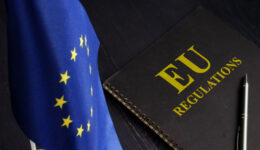EU AI Office Staffing Shortfall Risks Effective Regulation
The EU’s AI Office needs more staff to handle AI regulations, as it currently lags behind the UK’s AI oversight capacity, posing risks to EU citizens and businesses.

The EU’s AI Office needs more staff to handle AI regulations, as it currently lags behind the UK’s AI oversight capacity, posing risks to EU citizens and businesses.

The second draft of the General-Purpose AI Code of Practice outlines compliance measures for AI providers under the AI Act, focusing on transparency, risk management, and systemic risk obligations.

The OECD report outlines AI’s potential benefits and risks, urging policymakers to establish effective governance and safety measures.

FPF’s report highlights the need for structured AI impact assessments to manage risks, urging organizations to improve information gathering, education, and risk measurement strategies.

Tech giants and European firms are embracing “sovereign AI,” focusing on local infrastructure and data sovereignty to enhance competitiveness and cultural alignment within EU digital law frameworks.

The EU’s draft Code of Practice for AI model providers focuses on transparency and systemic risk management, seeking feedback to refine compliance guidelines under the AI Act.

The EU is consulting stakeholders to refine AI Act guidelines, focusing on defining AI systems and banned uses, with guidance expected in early 2025.

The EU Parliament’s AI monitoring group will oversee AI Act implementation, co-chaired by McNamara and Benifei, focusing on AI regulation based on societal risk.

The EU leads in AI regulation with a new framework; LatticeFlow’s Compl-AI assesses AI model compliance, revealing gaps in fairness and resilience, urging balanced development.

The World Economic Forum and GEP’s guide helps businesses adopt AI responsibly, focusing on transparency, accountability, and ethical principles to drive growth and efficiency.